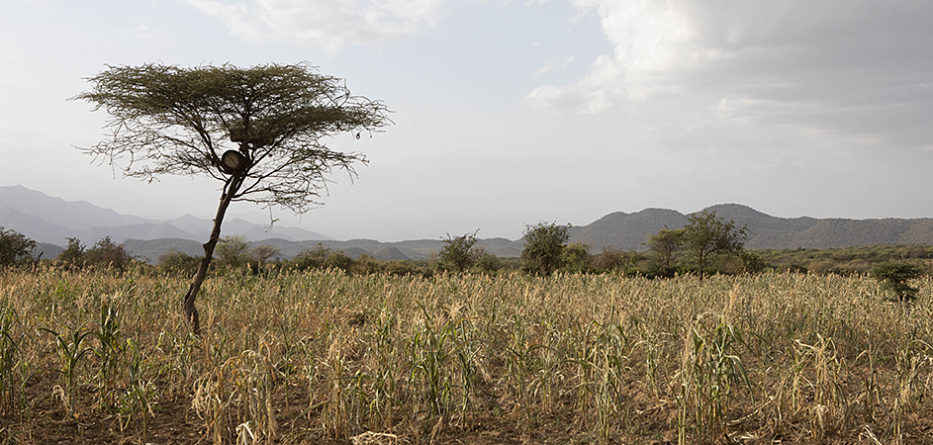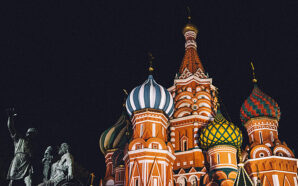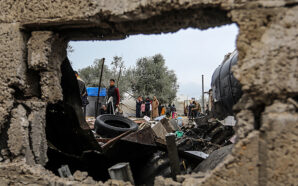Africa, like the whole world, woke up on February 24, 2022, to the news of the Russian invasion of Ukraine, a clear violation of international law and the UN Charter. Faced with the same reality, the international community reacted in different ways. While the U.S. and its Western allies activated a series of economic and diplomatic measures against Russia and set up a support system for Ukraine, the Global South has shown rather diverse and more circumspect attitudes. Indeed, some countries – Belarus, Syria, Djibouti and others – have expressed their support for President Vladimir Putin in his struggle over what he has called “security issues.” Others, meanwhile, have sought to be neutral in their diplomatic discourse toward both Russia and Ukraine, refraining from supporting sanctions against Russia or breaking diplomatic ties with either country.
Africa was not an exception to this diversity of reactions, with its countries divided and none of them ready to cut trade and diplomatic ties with the Russian Federation.[1] One of the easy explanations for this state of affairs was that the pro-democratic countries tended to support the Western position, while the more authoritarian countries tended to oppose it. In fact, this has not occurred, because even countries with strong democratic tendencies – Senegal, Ghana, Botswana and even South Africa – have avoided taking a position.[2] We must therefore look elsewhere for an explanation and analyze the consequences of this neutrality resulting in damaged unity, which is one of the unfortunate consequences of the Russian-Ukrainian war.
Our intention is to examine the negative impact on Africa of the invasion of Ukraine. We will attempt to do so by articulating three points. First, we will provide an interpretive context by briefly outlining the framework of Russia’s return to Africa. Second, we will focus on the first consequence of the invasion, namely, the questionable neutrality adopted by the African Union. Third, we will present other areas negatively affected by the war in Ukraine.
Russia’s return to Africa
Researcher Paul Stronski[3] believes that Russia is not a newcomer to Africa, but has always had an influence, from post-WWII decolonization until today. Therefore, if anyone talks about Russia’s return to Africa,[4] it is because of the time-gap that followed the fall of the Berlin Wall and the collapse of the communist bloc. The USSR has returned to Africa at the instance of several powers, both former colonizers and emerging ones. Indeed, the field abandoned by Russia after the 1990s has been occupied by newcomers such as China, India, Turkey and Brazil, all in search of cheaper raw materials and new markets. After the collapse of the communist bloc, Russian influence declined, not only because Russia was entering a phase of reconstruction, but also because Africa itself was under pressure from liberal influences which were pushing toward democratization and respect for human rights.
Russia’s tentative comeback in the 2000s accelerated in 2014, when it marked its entry into competition with the other powers already present on the continent. This date is not without significance, because it was in 2014 that Putin annexed Crimea to Russia, an annexation that had already earned him economic sanctions. It was therefore necessary to find new trading partners to cushion the shock. Moreover, with the arrival of President Donald Trump in the White House, there was lack of interest on the part of the United States in the African Continent.[5] All these events favored the return of the Russian Federation to Africa. Other initiatives were taken in different areas,[6] moves that once again demonstrated Russia’s renewed interest in Africa, especially at a time when the West had further tightened sanctions against Moscow.
However, given that Russia was a newcomer, informed observers note that its economic impact has remained less, in terms of financial and humanitarian aid, than that of the other powers. It stands out only in the supply of weapons and military technology[7] and, in return, receives mining contracts that it exploits as it sees fit.
Politically, Russia allows authoritarian governments to remain in power by providing them with the means to suppress opposition protests and by providing technology that sabotages electoral processes. Following its policy of “non-interference” in countries’ internal affairs and respect for national sovereignty, it offers African dictators strong support against Western liberal positions, especially in the UN Security Council, thanks to its veto power. Thus, in 2014, 25 African countries abstained from supporting the UN resolution against the Russian Federation, while two opposed it; in 2016 there was solidarity against the International Criminal Court (ICC).[8]
So Russia, in general, enjoys the support of positive public opinion in Africa, even more so after the invasion of Ukraine.[9] The main reason for this support is the growing anti-Western sentiment in Africa, due to the West’s colonial past and accusations of maintaining and nurturing forms of neocolonialism. The interference of the former colonial powers in African politics can be summarized as follows: those who are supported as long as they protect their interests govern, while those who oppose them are challenged; and to this is added the assassination of the major leaders of independence who supported African emancipation as a united group.
A pan-African movement is spreading among young Africans fighting against the influence of the West in Africa. Moreover, while putting pressure on some countries to respect democratic change in government, the West does not hesitate to maintain friendly and cordial relations with African leaders who have been in power for decades. This sort of hypocrisy pushes African youth to prefer Russia to the West, as it does not have a colonial past in Africa. On the contrary, it has been very involved in anti-colonial struggles. At least, so they claim, Russia is explicit in its aims and ambitions; it exploits resources and refrains from criticizing the ruling power. As some observers note,[10] the Russian attitude has no ideological agenda; it is pragmatic and based on a shared antipathy towards Western neocolonialism.
Moreover, for many Africans, Russia offers an alternative against an enemy they cannot defeat on their own. Hence, when the Russian Federation challenges NATO, one gets the impression that the pan-African movement sees it as indirect revenge. Last but not least, the Russian rhetoric of a multipolar world is very attractive in the light of an anti-West perspective.[11] Indeed, many Africans experience the economic and political actions of international institutions as the actual exercise of Western neocolonialism. That is why they blame it for the continent’s economic and political debacles. Some go so far as to assert that until this Western order and its local neocolonial structures are dismantled, Africa cannot develop.[12]
Impossible neutrality
The first negative consequence of the invasion of Ukraine was the differences of African Union (AU) members on the position to be taken in the face of such a war.[13] Indeed, despite the official declarations of the AU and some regional organizations,[14] they were far from satisfying everyone. Rather, these statements expressed concern about the situation and called on the parties to respect international law, to resolve the conflict peacefully and to ensure protection and safe passage for the civilian population, including those from the African continent who live or study in the affected areas.[15]
Of all the official positions, only the Economic Community of West African States (ECOWAS) called the situation a military invasion, strongly condemning it. The other statements were rather bland and sought to support Russia rather than Ukraine. To this one must add that the Ukrainian president wanted to address the African Union, but was unable to do so as he moved from one parliament to another in the Western world. When he finally had the opportunity, only four of the 55 heads of state were present at the video conference.[16] Meanwhile, the current chairman of the African Union and the chairman of the AU Commission traveled to Russia to meet with Putin to negotiate the release of much-needed grain to Africa.[17]
Clearly, faced with the divergent positions of the AU member countries and the complexity of the interests involved in Russian-African relations, Africa has largely wanted to be neutral in the current Russian-Ukrainian confrontation. But, at the same time, it has continued to affirm its support for world peace and stability.[18] The question, therefore, is whether the African Union is truly neutral or rather afraid of irritating its long-standing main ally, on whom it relies heavily. One may even go so far as to question whether such a position of neutrality is sustainable.
For analyst Tafi Mhaka, the AU is not showing true neutrality.[19] Indeed, it is difficult to be neutral because Russia’s military invasion of Ukraine is an open violation of international law and the UN Charter. Moreover, for a continent that has experienced the horrors of colonialism and is still struggling against neocolonialist interference, there can be no ambiguity in condemning any expansionist tendencies. Now, as sociologist Ebenezer Obadare notes, the Russian invasion and violation of diplomatic norms parallels the West’s historical pattern of breaking international law at will.[20] Add to this the damaging consequences that this invasion has caused in Africa, as we have already mentioned; the failure to condemn it is worrying because it risks being interpreted as support.[21]
Africa has still chosen neutrality. But is it really a desired and chosen neutrality, or is it not rather, once again, a stance chosen so as not to alienate such a powerful ally? In the context of Russian-African relations examined above, we can conclude that this neutrality is purely pragmatic.[22] Its purpose is to secure the benefits of the Russian presence in Africa, while continuing to uphold respect for international law. But this is where Africa is between a rock and a hard place. For, as Mhaka notes, how can the AU defend territorial integrity and the principle of self-determination if it does not support the UN Charter and international law? In other words, how can it defend the UN Charter and international law if it does not openly condemn their blatant violation, as in the case of the military invasion of Ukraine?
This is, in our view, the situation that the Ukrainian crisis has highlighted and shows the steps Africa must take to uphold and enforce international norms, if it does not want to join those who are criticized for manipulating international law according to the interests at stake. If this is what The West is criticized for, such a practice cannot become a model for those states who want to be a moral community of nations. Africa must commit itself to the realization of this community.
The other effects on Africa of the war in Ukraine
Since neither Russia nor Ukraine provides much development aid to African countries, one might have expected the Russian invasion to have little impact on the continent. But the opposite has occurred. Following the sanctions against Russia, Africa has found itself in the thick of the storm, all because of a war being fought thousands of miles from its shores. In fact, in addition to the Maghreb countries, which import most of their grain from Ukraine and Russia, sub-Saharan Africa has not escaped the damaging effects of the conflict. And as Kyiv was being emptied of its population who were fleeing Russian bombing, Africans faced racial discrimination denounced by both public opinion and official channels. The African Union also expressed concern about the mistreatment of African citizens and called for compliance with international norms, guaranteeing the right to cross borders in cases of conflict.[23]
In addition to these diplomatic tensions, there were logistical problems for the repatriation of African citizens, and difficulties for students trying to enroll in European universities. Again, a double standard was noted, as Ukrainian refugees were welcomed and enjoyed European hospitality, but Africans were ordered to return to their countries of origin. The Ukrainian refugee crisis also revealed the dual approach of Western humanism, which is not entirely free from racial bias.[24]
Over and above these diplomatic and humanitarian issues, Africa has suffered the full consequences of the Ukrainian invasion in the energy sector, because it has caused fuel prices to rise. This increase has particularly affected the transport sector and, consequently, other essential goods. This has led to an increase in the cost of living, which also raises fears of an increase in cases of malnutrition. Famine is feared by countries dependent on imports of basic necessities, especially in the Horn of Africa. There is also the risk of an increase in the poverty rate on the continent, because the rise in prices tends to concentrate spending on subsistence goods rather than on investments. Moreover, while it is true that, compared to other powers, the Russian Federation is not a major trading partner in Africa, there are some countries, such as South Africa, which used to export fruit to Russia and whose loss of earnings today is not negligible.
The invasion has also had a negative impact on the agricultural sector. In fact, many African countries were importing chemical fertilizers from Ukraine and Russia. With the war, there is no possibility of procuring them, and it is not easy to find an alternative supplier in case of emergency nor in time for the growing seasons. This will have an impact on meeting food needs, especially as poor harvests will worsen the precarious food situation, creating food insecurity and even the risk of famine. Human Rights Watch[25] had already warned that if the war continued until April, world hunger would increase by 17 percent. Now, Africa is the first victim of this situation, because of the increase in the prices of energy, food and agricultural fertilizers.
In addition to these already perceived effects, there are also those that give rise to fear. The first is political instability. In fact, the so-called Arab Spring of 2011 was fueled in large part by the precarious socio-economic situation that triggered the various popular uprisings. Rising prices, food insecurity and the precariousness of life could cause the same results in some African countries. On the other hand, as the West is now concerned about its own survival in the face of the energy crisis, it too risks adopting a pragmatic attitude toward Africa, abandoning concern for human rights, good governance and support for democratic movements and civil society, in order to secure gas and oil contracts. Therefore, with Russian political interference in Africa, democratic movements and civil society will suffer without any opposition. This will consolidate authoritarianism and mark a decline in democracy.[26]
There are also concerns about humanitarian and development aid. In fact, despite the presence of other emerging powers, such as China, India and Turkey, most humanitarian and development aid in Africa comes from the European Union and the United States. Today, however, all attention is focused on the humanitarian and security situation in Ukraine and the management of the energy crisis in Europe. There could therefore be a reduction in humanitarian aid in the light of the devastation of Ukrainian infrastructure.[27] The same risk is to be feared for development aid and budget support. This will further aggravate the socio-economic situation of the countries that depend on it. Last April, ActionAid International warned that, since the Russian invasion of Ukraine, there has been no political and economic support for Africa and that 14 million people in the Horn of Africa are starving.[28]
From the diplomatic point of view, Africa is in danger of becoming – and already is – a battleground for the great powers who want to expand their spheres of influence and fight each other through third countries. In fact, not long ago, the Russian foreign minister was touring Africa,[29] as was his American counterpart.[30] A few days later, it was the turn of the French president[31] and the German chancellor.[32] In addition to these trips, the U.S., in order to counter Russian influence in Africa, has recently adopted a law recommending close monitoring of Russian influence and activities that could undermine U.S. interests; it calls for finding ways to counter them by targeting Russia and African governments, as well as people who support or participate in such programs.[33] The tone is that of the Cold War.
Now, the last time Russia and the U.S. clashed in Africa it resulted in endless dictatorships coming into being and civil wars, marked by assassinations and illegal incarcerations. It is therefore to be feared that the same thing will happen again now, because the two powers embrace two different visions of world order: one wants to maintain the status quo of post-1945 liberal institutions, while the other wants a multilateral world order with different poles of influence.[34]
Finally, all these negative effects will undoubtedly affect the energy and ecological transition. Indeed, before the invasion of Ukraine, the ecological crisis had become – and rightly so – a planetary emergency. But today, because of the energy crisis, some countries are beginning to return to energy sources they had abandoned, such as coal and nuclear power. Analysts Katie Auth and Todd Moss[35] have identified seven ways the Ukrainian war will affect Africa’s energy transition. Among other criticisms, they expose the climate hypocrisy of Europeans, who push for environmental protection only when it benefits them, and dispense with it when their interests are threatened.
European diversification of energy sources could be an advantage for oil-producing African countries. These, in fact, can offer an alternative route to Russian gas and thus benefit from rising oil prices. However, it should be noted that this money will not be of much use, because most of those countries import the fuel as they do not have their own refineries. And then there are the ecological consequences, not to mention the increase in prices of basic necessities.
One positive element, highlighted by some observers,[36] is that the war in Ukraine could become an opportunity for Africa to strengthen its food production chains in order to reduce its dependence on the outside world. But this would be a long-term project, which would not immediately solve the food problems that the war has already caused.
* * *
These are some of the negative effects that the Russian-Ukrainian war has already caused or is threatening to cause. For these reasons, too, the African Union has been forced to adopt an ambiguous position of neutrality, which is difficult to maintain. While this may have immediate benefits in the short term, in the long term it risks undermining Africa’s moral standing vis-à-vis international norms, the foundations of global stability, and this would be detrimental to the entire continent. Moreover, we have tried to identify several sectors already negatively affected by the Russian-Ukrainian war – especially in the fields of energy and agriculture – with the fear that other spheres will be affected, particularly political stability and the environment. It is therefore hoped that Africa will continue to fight for the safeguarding of and respect for the principles and norms that protect the territorial integrity and sovereignty of all countries, large or small, and that the conflict will come to an end as soon as possible, in order to avoid the worst consequences for Africa and for the world.
Fidèle Ingiyimbere SJ is Professor of Philosophy at Arrupe College in Harare, Zimbabwe.
Reproduced with permission from La Civiltà Cattolica.
[1]. Cf. J.-P. Bodjoko, “Russia’s Influence in Africa”, in Civ. Catt. En. May 2022, https://www.laciviltacattolica.com/russias-influence-in-africa/; L. Brook-Holland, “Ukraine Crisis and Africa”, in UK Parliament – House of Commons Library, April 6, 2022, 10f; M. Kiiza Bakwesegha-Osula, “Why Africa is divided over the Russia-Ukraine war?”, in Ips – Foreign and Security Policy, March 16, 2022.
[2]. See N. Westcott, “The war in Ukraine: Africa risks paying a heavy price for neutrality”, in The Conversation, May 11, 2022.
[3]. See P. Stronski, “Late to the Party: Russia’s Return to Africa,” in Carnegie, October 16, 2019.
[4]. Cf. A. Paczynska, “Russia in Africa: Is Great Power Competition Returning to the Continent?”, in Deutsches Institut für Entwicklungspolitik , Briefing Paper, No. 15, 2020; M. Russell – E. Pichon, “Russia in Africa: A new arena for geopolitical competition”, in European Parliament, November 8, 2019; H. Fidan – B. Aras, “The Return of Russia-Africa Relations”, in Bilig, No. 52, December 2010, 47-68; A. Kalika, “Russia’s “Great Return” to Africa?”, in Ifri, April 2019; M. Matusevich, “Russia in Africa: A Search for Continuity in a Post-Cold War Era”, in Insight Turkey, March 13, 2019, 25-40.
[5]. Cf. A. Paczynska, “Russia in Africa…”, op. cit.; A. Kalika, “Russia’s “Great Return” to Africa?”, op. cit., 2.
[6]. Cf. B. Aris, “Russia preparing for second Africa Summit to build closer ties as it pivots away from the West”, in bne intellinews (www.intellinews.com/russia-preparing-for-second-africa-summit-to-build-closer-ties-as-it-pivots-away-from-the-west-247188), June 12, 2022. See also J.-P. Bodjoko, “Russia’s influence in Africa”, op. cit.
[7]. See A. Grisson et Al, “Russia’s Growing Presence in Africa: A Geostrategic Assessment”, in Rand Corporation, 2022; A. Paczynska, “Russia in Africa…,” art. . cit., 4; M. Russell – E. Pichon, “Russia in Africa…,” art.. cit.
[8] . Cf. M. Russell – E. Pichon, “Russia in Africa…”, op. cit., 8. On the vote of African countries on the resolution condemning Russian aggression, cf. J.-P. Bodjoko, “Russia’s Influence in Africa”, op. cit.
[9] . Cf. M. Blankenship – A. Uche Ordu, “Russia’s narratives about its invasion of Ukraine are lingering in Africa”, in Africa in Focus, Brookings, June 27, 2022.
[10]. Cf. M. Matusevich, “Russia in Africa…,” op. cit., 37; K. Giles, Russian Interests in Sub-Saharan Africa, Carlisle, PA, Strategic Studies Institute and U.S. Army War College Press, 2013, 11.
[11]. See J. Siegle, “Russia and the Future of International Order in Africa”, in African Center for Strategic Studies, May 11, 2022.
[12]. See E. El-Badamy et Al, “Security, Soft Power and Regime Support: Spheres of Russian Influence in Africa”, in Tony Blair Institute for Global Change, March 23, 2022; C. Owen, “Mapping Russian illicit finance in Africa: the cases of Sudan and Madagascar”, in Open Research Exeter, April 29, 2022; K. Giles, Russian Interests in Sub-Saharan Africa, op. cit.; A. Kortunov et Al, “Africa-Russia+: Achievements, Problems, Prospects”, in Riac, March 5, 2020.
[13]. See P. Fabricius, “Ukraine war reveals divided Africa”, in Institute for Security and Studies, March 18, 2022; L. Brook-Holland, “Ukraine Crisis and Africa”, op. cit., 21.
[14]. See African Union, “Statement from Chair of the African Union, H. E President Macky Sall and Chairperson of the AU Commission, H. E. Moussa Faki Mohamat, on the situation in Ukraine”, Addis Ababa, February 24, 2022; Id., “Press Release: African Union Calls its Member States to Discuss Russia-Ukraine Crisis Impacts and Common African Position for COP 27”, Addis Ababa, June 13, 2022; “Statement of Igad on the Situation in Ukraine”, March 1, 2022.
[15]. See IGAD, Statement of the Situation in Ukraine, March 1, 2022.
[16]. Cf. B. Norton, “Only 4 of 55 African leaders attend Zelensky call, showing neutrality on Ukraine and Russia”, in MRonline (https://tinyurl.com/ycxjf623), June 25, 2022. In early October, the Ukrainian foreign minister made a 10-day tour of Africa, starting in Senegal. Cf. B. Dione, “Ukraine’s foreign minister pledges to export grain to Africa”, in AP news (https://tinyurl.com/37f7r3sm), October 4, 2022.
[17]. Cf. Z. Majeed, “Putin Meets African Union Chairman & Senegal Prez Macky Sall In Russia Amid Ukraine War”, in Republicworld.com (https://tinyurl.com/3mds8suc), June 3, 2022.
[18]. See T. Mhaka, “Can the African Union be a neutral arbiter of peace in Ukraine?”, in Aljazeera, May 28, 2022.
[19]. See ibid.
[20]. See E. Obadare, “Analyzing The Russia-Ukraine Conflict from an African Standpoint”, in Council on Foreign Relations, March 3, 2022.
[21]. See “Africa Reacts to the Russian Invasion of Ukraine”, in Center for Strategic and International Studies, March 8, 2022.
[22]. See “Russian Invasion of Ukraine creates collateral damage in Africa”, in International Economic CEO’s Insight, April 6, 2022.
[23]. See African Union, “Statement of African Union on the reported ill treatment of Africans trying to leave Ukraine”, Addis Ababa, February 28, 2022.
[24]. Indeed, in Africa it has been said that Europe has welcomed them because they are blue-eyed, blond-haired Christians who share the same culture: this is the opposite of the attitude reserved for African and Middle Eastern migrants. See “Hypocritical Media Coverage of Ukraine vs. the Middle East”, in www.youtube.com/watch?v=2z9UyPurVok
[25]. See “Ukraine/Russia: As War Continues, Africa Food Crisis Looms: Provide Aid, Expand Social Protection to Prevent Hunger”, in Human Rights Watch, April 28, 2022.
[26]. See United Nations Development Programme, “The impact of the war in Ukraine on sustainable development in Africa”, May 24, 2022.
[27]. See K. Duho et Al, Exploring the Russo-Ukrainian Crisis and Its Impact on African Countries: A Cross-Regional Analysis, Accra, Dataking Research Lab, April 2022.
[28]. See ActionAid International, Open Letter on the impact of the Ukraine crisis in Africa, April 25, 2022.
[29]. Cf. G. Atanesian, “Géopolitique: que veut la Russie en Afrique?”, in BBC News (www.bbc.com/afrique/region-62347112), July 29, 2022.
[30]. Cf. R. Gopaldas, “L’opération séduction de Blinken en Afrique”, in Institut d’études de sécurité (https://issafrica.org/fr/iss-today/loperation-seduction-de-blinken-en-afrique), August 17, 2022.
[31]. Cf. A. Mouko – S. Djenoukpo, “Quels sont les enjeux de la tournée d’Emmanuel Macron en Afrique?”, in BBC News (www.bbc.com/afrique/articles/c0wnnlk5v5po), July 25, 2022.
[32]. Cf. “Olaf Scholz en tournée en Afrique, avec ‘l’Ukraine en arrière-fond’”, in Courrier international (www.courrierinternational.com/article/diplomatie-olaf-scholz-en-tournee-en-afrique-avec-l-ukraine-en-arriere-fond), May 24, 2022.
[33]. See www.congress.gov/117/bills/hr7311/BILLS-117hr7311rfs.pdf
[34]. Cf. J. Siegle, “Russia and the Future of International Order in Africa”, op. cit.
[35]. See K. Auth – T. Moss, “How Russia’s Invasion of Ukraine Will Impact Africa’s Energy Transition”, in Council on Foreign Relations, April 22, 2022.
[36]. See J. Sacko – I. Mayaki, “How the Russia-Ukraine conflict impacts Africa: An opportunity to build resilient, inclusive Food Systems in Africa”, in Africa Renewal, April 21, 2022.








